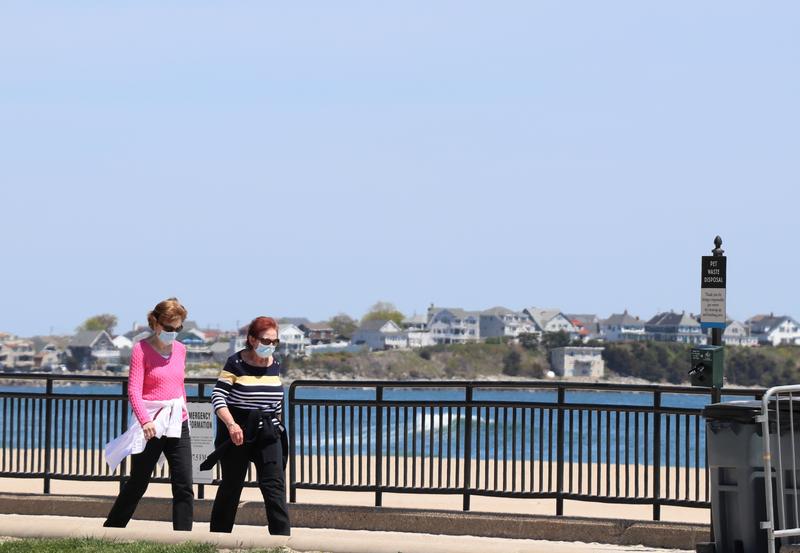COVID And Black Lives Matter Have Spurred Real Change; Why Can’t Climate Change Do The Same?

Masked pedestrians pass by the ocean in Hampton Beach in May. (Dan Tuohy/NHPR)
Our new climate change reporting initiative, By Degrees, begins in an unprecedented time – one where people are making seismic shifts in their lifestyles and attitudes in response to COVID-19 and the Black Lives Matter movement.
Many of our listeners have wondered: why haven’t people reacted the same way to the climate emergency, and could that be about to change?
Cheri Schmitt is a teacher in Bedford who describes herself as eco-conscious — she says she and her husband have always tried to recycle and compost. But when they had to start staying home due to COVID-19, they found themselves doing a lot more.
“We’re being very careful about food waste, because obviously it’s not like you can just drop everything and run to the grocery store any time you want to,” she says.
Driving less, shopping less, finding new ways to reduce disposable paper waste and reuse cloth towels and napkins — the changes Schmitt made in response to the coronavirus are some of the things scientists say can help reduce the carbon emissions that drive climate change.
Globally, the coronavirus-related shutdowns led to a 17 percent drop in emissions by mid-spring, though that trend has reversed as life has begun to resume.
Still, if lots of people could quickly form new habits like this during the pandemic — why didn’t they do it sooner, knowing the need to act on climate change? Schmitt has an idea:
“Well, I think it’s because – unfortunately, that’s part of the human condition, you know,” she says. “People don’t tend to want to focus on something until it’s in a crisis state.”
Read the rest of this story at NHPR’s website.
